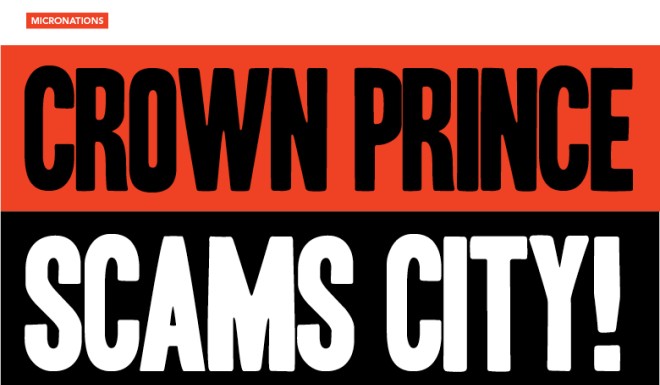
Hong Kong's History of False News, Pranks and Scams
From Jackie Chan's death to a Hang Seng collapse that never happened, a look back at the city's falsehoods.
In 2005 the city woke up to a brand new musical sensation. Actors Daniel Wu, Terence Yin, Andrew Lin and Conroy “Drunk” Chan announced that they’d got together one night at karaoke and realized that they should start a group: and so four-piece boy band Alive was born. The group recorded an EP and was outraged when they discovered that one of their tracks had been illegally ripped and shared online before its actual release. Still, between that and a spot of bad-boy behavior—Wu ripped into “pale skin” Disneyland staff while filming a promo feature for them—the band got noticed. It looked like Alive was well on its way to Cantopop superstardom.
Except, of course, that none of it was real. Alive was actually a band created by the four in order to make 2006 mockumentary satire “The Heavenly Kings,” a skewering of the city’s pop industry—as Daniel Wu gleefully announced after the film’s premiere at the Hong Kong International Film Festival.

The four had come up with the idea of a mockumentary, then realized that the cheapest way to make the movie was actually to create the band. If they really performed they wouldn’t have to pay extras, could accept advertising cash, and so on. The song leak: they’d engineered it. Most of the band were pretty crap singers auto-tuned into harmony, and each was acting out a heightened version of their public persona: from Wu’s control freak image to Chan’s fame because he’s married to the much more famous Josie Ho.

On April 1, 2010, Metro Daily was handed out as usual to the commuters of the city. But the city's first free paper was different today: it was dated April 1, 2028, and the headline read: “Hong Kong Island Borders Kowloon Peninsula,” alongside a photograph of the whole of the harbor having been reclaimed for land. Property experts welcomed the news as sure to bring down property prices, while transportation officials welcomed the relief it would offer to the Cross-Harbour Tunnel.
Meanwhile, on the inside pages a 400-square-foot Tin Shui Wai flat had been sold for a record $40 million, a move authorities said was an orderly increase. And Hong Kong's convoluted functional constituencies were proposed for submission to the United Nations as part of Hong Kong's intangible cultural heritage.
Better still, this blackly comic April Fools’ joke was actually spun not from the minds of Metro Daily’s jaded staff—but from the minds of Hongkongers themselves. The entire paper had been crowd sourced from the public, who were invited to send in their idea of what a paper of 2028 would look like. The result then wasn’t exactly optimistic: Doesn’t it make you wonder what a vision of the future would look like today?

Hong Kong’s SARS outbreak in 2003 pushed the city far off balance. Over the second half of March, the city went from business as usual to ghost town as this deadly disease spread. Block E of Amoy Gardens, which saw the worst of the outbreak, was placed under quarantine at the end of the month.
Growing nervousness over this deadly disease turned into panic when what appeared to be a Ming Pao news report claimed that the city’s ports had been closed to prevent the virus spreading any further across the globe. Also in the report: The Hang Seng Index had collapsed in the wake of the news and Chief Executive Tung Chee-hwa had resigned in disgrace.
The news spread fast in the on-edge city, triggering panic buying as Hongkongers rushed to stock up before the city ran out of supplies. Fights broke out in the shops as shelves emptied of rice and bottled water. The economy really did dip, and the government had to hold an emergency conference denying the story.
In fact, the news story was the work of a 14-year-old boy, who posted it to his own website on April 1, 2003. The page had been mocked up to look like Ming Pao’s site. Combined with the public mood at the time, no one was in the right frame of mind to check their sources: cue panic. The juvenile prankster was found and sentenced to 12 months of social worker supervision. As for Tung Chee-hwa—he didn’t resign for another two years.

In 1995, royalty dropped into Hong Kong. A young man appeared in the territory going by the name of “His Serene Highness Gerald-Dennis Sayn-Wittgenstein-Hohenstein.” He said he was the Crown Prince of the Dominion of Melchizedek: a micronation which claims as its sovereign land a semi-submerged island in the South Pacific, one of the Marshall Islands and a sizable slice of Antarctica.
The Crown Prince was rumbled in Hong Kong when he was caught trying to use Melchizedekian checks he claimed were worth $500,000 to open Hong Kong bank accounts. It emerged that the micronation of Melchizedek was the cornerstone of a large-scale banking fraud which sold nonexistent licenses for companies and raised money on the country’s equally nonexistent assets. As for the crown prince, he turned out to be 22-year-old Gerhard Bacher, an unemployed Austrian who had been living inside the terminal at Kai Tak airport. He was tried (where it came out that he’d traveled around the region on his Melchizedekian passport) and sentenced to six months in prison.
Three years later, three other representatives of the nation, including former Hong Kong barrister and public prosecutor Stuart Mason-Parker, were arrested in Manila on suspicion of running a million-US-dollar passport scam. Mason-Parker was deported to the UK and never charged. But if you still think business with the Dominion of Melchizedek is a good idea, we’ve got some lovely solid gold watches we’d love you to take a look at.

Speed skater Barton Lui Pan-To was a proud Hongkonger indeed when he became the city’s only athlete to compete in the 2014 Sochi Olympics. But feathers were ruffled when a screenshot made the rounds online of a TVB interview with the athlete at Sochi, in which Lui’s name appeared next to the Hong Kong flag—the colonial era Hong Kong flag, that is.
Post-90s kids and localists were thrilled by the mistake, but the image was soon revealed to have been doctored. Sadly, Lui’s hopes for success were similarly short lived: He dropped out in the second heat of the competition.

For some reason, people really, really, really want Jackie Chan dead. The kung fu star has been rumored to have died in 2010, 2011, 2013, 2015 and earlier last month, on March 26, 2016. In one compelling version of the tale, Chan dies after falling 12 storeys to his death in the pursuit of the perfect stunt. It’s all the more believable given his history of pulling off his own death-defying stunts—surely, the logic goes, he’ll fail to defy death some day?
As Chan’s representatives responded to the 2015 hoax: “stop believing what you see on the Internet.” The only real takeaway from all of this? Simple: Jackie Chan will never die.

In 2014 a Hubei man came to Hong Kong to pull off the bank robbery of the century: three banks in three days. The only problem? He started on April 1. On April Fool’s Day the man allegedly headed to a bank on Ngau Tau Kok Road, where he handed the teller a threatening note demanding money and threatening to explode a bomb. The harried teller thought it was scrap paper and helped the robber throw it away. In the second bank just down the road, he handed over the note but wrote the characters for “robbery” wrong.
The teller thought it was an April Fool’s prank, and by the time she realized it wasn’t, the man had lost his nerve and run off. Two days later he tried to rob a Sham Shui Po bank for a paltry $10,000, but again he left before the money was handed over.
Police arrested him on April 4. Earlier this year he pleaded not guilty to theft: The case continues.

John Tsang
The grinning buffoon has been in charge of Hong Kong’s purse strings for the past nine years now. And for every one of those years he’s operated with a mind-blowingly large surplus that he seeks to hang on to, like a hamster stuffing celery into its cheeks for later, all while making dire prognostications about Hong Kong’s future—and woefully underestimating the budget surplus year on year. Here’s a thought, John: If you spent some public money on making things better right now, maybe the future wouldn’t look quite so bleak. Best of all, the hairy man-walrus is looking increasingly tipped to become the city’s next Chief Executive. Oh, joy!
Stephen Chow
Hong Kong comedy royalty. This perky dude pretty much invented the mo lei tau nonsense movie, propelling Hong Kong cinema beyond action flicks and into a whole new genre of slapstick non-sequitur humor where you either got it... or were left scratching your head, wondering what everyone else was laughing at.
HK Golden Forums
Never underestimate the power of the gou dung jai, the golden boy: a member of the city’s most active, most powerful forum. Originally started as a site for the Golden Computer Arcade in Sham Shui Po, the site has since become an archive and an originator of Hong Kong pop culture, living proof that the city is more creative than ever. If you see a Hong Kong meme or joke out in the wild, chances are it originated on HK Golden. The same applies to new Cantonese slang, which is born on the platform before spreading out into the real world. Notable successes of the forum include its use as a discussion and organization platform during the Occupy protests, and 2014 Fruit Chan movie “The Midnight After,” which was adapted from the novel “Lost on a Red Mini Bus to Tai Po,” which user “Mr. Pizza” posted in serialized form to HK Golden from February to July 2012.
CY Leung
'Nuff said.

